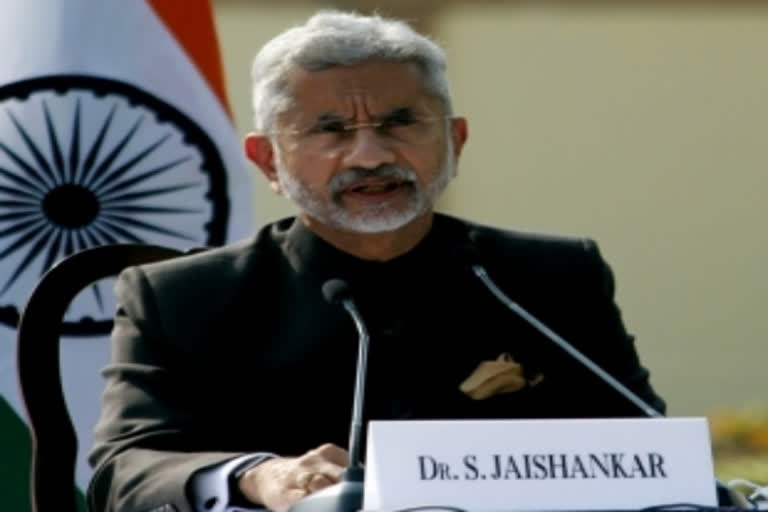New Delhi: External Affairs Minister S. Jaishankar's clarion call during his address to the UN Security Council on Tuesday marks a new pro-active phase in India's global diplomacy on Afghanistan. Jaishankar nailed the urgency for a holistic international approach to end conflict by focusing on the umbilical link between terrorism in Afghanistan and Pakistan.
In tune with Jaishankar's call, National Security Adviser, Ajit Doval is heading for Dushanbe for a conference of region's security chiefs, under the umbrella of the Shanghai Cooperation Organisation (SCO), where the turbulent situation in Afghanistan is bound to be discussed.
Jaishankar during his address went for the jugular when he stressed that the supply chains of terrorism which end up in Afghanistan must be disrupted, for fostering "enduring" peace. "For enduring peace in Afghanistan, terrorist safe havens and sanctuaries must be dismantled immediately and terrorist supply chains disrupted. There needs to be zero tolerance for terrorism in all its forms and manifestations including its cross-border one," he said in a veiled reference to Pakistan.
Read:MEA Jaishankar arrives in Kenya on bilateral visit to strengthen ties
EAM Jaishankar drove home his point of a composite approach to end terrorism when he hammered his call for "double peace," both within and across the border. "A durable peace in Afghanistan requires a genuine double peace. That is, peace within Afghanistan and peace around Afghanistan. It requires harmonising the interests of all, both within and around that country," he said.
By calling out for regional approach, Jaishankar was implicitly erasing Pakistan's oft-quoted argument of dominating Afghanistan to acquire "strategic depth" against India. In India, there are deep and genuine concerns that Pakistan's sway can once against turn Afghanistan into a ground zero from where global Jihad radiates across the glove, drawing Kashmir into the international terror orbit.
Unsurprisingly, Jaishankar spotlighted that, "It is equally important to ensure that the territory of Afghanistan is not used by terrorist groups to threaten or attack any other country. Those providing material and financial support to terrorist entities must be held accountable."
India's high decibel call for the world to act on the fundamentals and mechanics of terrorism threatening to re-permeate into Afghanistan is natural. India has invested over $3 billion since the Taliban's exit in 2001, apart from substantially pitching in its political capital and soft-power reserves in a country, long known as a "graveyard of empires". Jaishankar pointed out that India remains committed to steadfastly supporting Afghanistan during its transition. Our development partnership, including more than 550 Community Development Projects covering all 34 provinces, is aimed at making Afghanistan a self-sustaining nation, he said.
Besides, India has recently signed a Memorandum of Understanding with the Afghan government for building the Shatoot dam, which would provide safe drinking water to the residents of Kabul city, he observed.
The EAM asserted that landlocked Afghanistan must have access to high -seas-a reference to India's participation with Afghanistan and Iran in the Chabahar port project. India has also built a strategic road linking Chabahar with Afghanistan's road network.
But noting practical difficulties on the ground during transit, Jaishankar alerted the international community to work towards the removal of artificial transit barriers imposed on Afghanistan and ensure full transit rights guaranteed to Afghanistan under bilateral and multilateral transit agreements without any hindrance.
